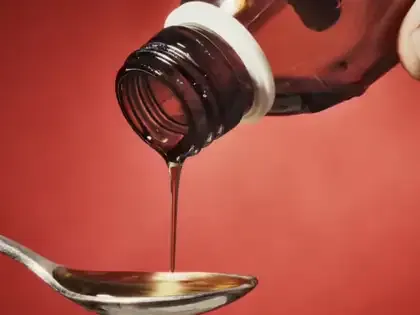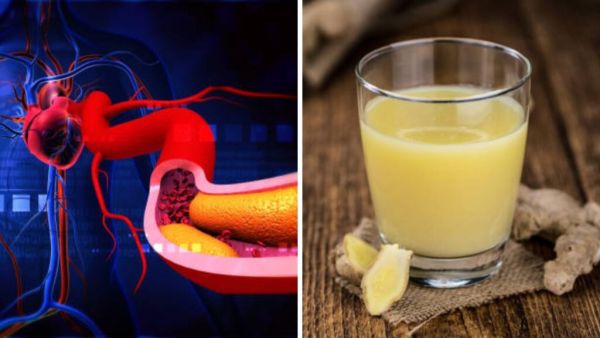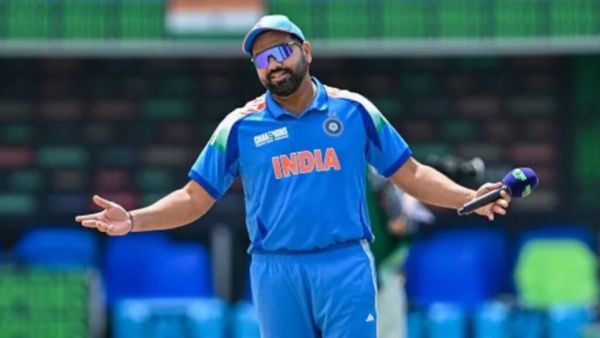Once again, the ‘pharmacy of the world’ has shown its ugly side. As per jaded script, the drug controller of the state has been transferred and three officials suspended since the deaths of at least 20 children in Madhya Pradesh since Sept 2 from toxic cough syrup poisoning.
Praveen Soni, the state paediatrician who prescribed the toxic solvent diethylene glycol (DEG)-laced medicine to many of the deceased children, has been arrested. Much like a soldier being court-martialled for failing to defend his post after the weapon issued to him was found to be defective and failed to fire. The first large-scale DEG poisoning occurred in 1937 in the US when more than 100 people, including many children, died. After this tragedy shook the country, drug regulations were made more stringent, with the US Congress passing the 1938 Federal Food, Drug and Cosmetic Act. The US has never witnessed DEG poisoning again.
In many other countries, however, the ‘tragedy’ has been a recurring one. Seven children died of DEG poisoning in South Africa in 1969; 47 in Nigeria in 1990 and then again 84 in 2008; and 236 in Bangladesh in 1990-92. In Argentina, 29 people, mostly elderly, died in 1992 after having DEG-laced propolis syrup; 75, mostly children, in Haiti in 1996; and more than 400 deaths in Panama in 2007.
India — fourth-largest economy in the world, and gung-ho about becoming a developed economy by 2047 — has had 5 major DEG poisoning tragedies prior to the latest one: Madras in 1972, killing 15 children; Mumbai’s JJ Hospital in 1986 killing 14 patients; Bihar in 1988 claiming 11 lives; Gurgaon in 1998 when 33 children died; and Ramnagar, Jammu, in 2019, with the death of 12 children.
‘Made in India’ cough syrups have been accused of causing deaths in other countries, too. In October 2022, WHO issued a global alert on 4 contaminated India-made cough syrups after the death of 69 children due to acute kidney failure in Gambia. Within a month, deaths of 18 children in Uzbekistan were linked to India-made cough syrup. Conspicuously, in both cases, the manufacturers were not the same — Haryana-based Maiden Pharmaceuticals in the Gambian case, UPbased Marion Biotech in the Uzbek one. The latest deaths in MP have been sourced to yet another company, Tamil Nadubased Sresan Pharmaceuticals.
After the deaths in Gambia, GoI reportedly conducted independent tests on Maiden Pharma batches of cough syrup. It subsequently stated the clinical information provided by WHO was ‘inadequate’ to determine the cause of death. In the case of the deaths in Uzbekistan, however, GoI’s inspection revealed manufacturing violations,cancelled’ in March 2023. That is, until the UP government allowed production to be resumed in October 2023.
‘[Marion’s] permission to make products using propylene glycol is cancelled, and it is allowed to make and sell all other products,’ stated UP drug controller Shashi Mohan Gupta in the September 2023 order, in accordance with UP’s health department’s August 2023 decision. Since 2022, India has made it mandatory for cough syrups to be tested before export. However, the same rules don’t apply to products sold within India. It seems India has decided that Indian lives, including those of its children, are cheaper than those abroad. The truth is, Indian pharma companies often fail to test either ingredients or final products, violating good manufacturing practices (GMP), supposedly enforced by Central Drugs Standard Control Organisation (CDSCO). Many small pharma companies lack facilities for testing. How they get away is a story of corruption and inspecting agencies throwing oversight out of the window.
Drug regulations are applied with kid gloves by regulators, inspectors, and even the judiciary and executive, which tend to tolerate manufacturers of substandard drugs. Instead of making drug regulations stricter, recent amendments of Drugs and Cosmetic Act 1940 in the form of Jan Vishwas (Amendment of Provisions) Act 2023 have allowed provisions by which a manufacturer of a substandard drug can be let off upon paying a fine instead of imprisonment.
After the DEG poisoning deaths at JJ Hospital in 1986, the Maharashtra CM appointed Justice Bakhtavar Lentin to head a commission of inquiry. The 289-page Lentin report, tabled the same year, made a scathing indictment of public health administration and called for a major overhaul. Yet, some 40 years on, the case continues to be heard at a metropolitan magistrate’s court in Mumbai. Since the hearings began in 1991, two of the accused have died, one is absconding, while most of the others accused are now 70-90 years old.
India needs a stringent regulatory framework to put the searchlights on drug quality control, making consumer safety nonnegotiable. There must be greater consultation among industry, patients, families, healthcare professionals, civil society, judiciary and policymakers. India must realise that the value a country gives to lives, especially its children’s, is what makes its reputation.
Praveen Soni, the state paediatrician who prescribed the toxic solvent diethylene glycol (DEG)-laced medicine to many of the deceased children, has been arrested. Much like a soldier being court-martialled for failing to defend his post after the weapon issued to him was found to be defective and failed to fire. The first large-scale DEG poisoning occurred in 1937 in the US when more than 100 people, including many children, died. After this tragedy shook the country, drug regulations were made more stringent, with the US Congress passing the 1938 Federal Food, Drug and Cosmetic Act. The US has never witnessed DEG poisoning again.
In many other countries, however, the ‘tragedy’ has been a recurring one. Seven children died of DEG poisoning in South Africa in 1969; 47 in Nigeria in 1990 and then again 84 in 2008; and 236 in Bangladesh in 1990-92. In Argentina, 29 people, mostly elderly, died in 1992 after having DEG-laced propolis syrup; 75, mostly children, in Haiti in 1996; and more than 400 deaths in Panama in 2007.
India — fourth-largest economy in the world, and gung-ho about becoming a developed economy by 2047 — has had 5 major DEG poisoning tragedies prior to the latest one: Madras in 1972, killing 15 children; Mumbai’s JJ Hospital in 1986 killing 14 patients; Bihar in 1988 claiming 11 lives; Gurgaon in 1998 when 33 children died; and Ramnagar, Jammu, in 2019, with the death of 12 children.
‘Made in India’ cough syrups have been accused of causing deaths in other countries, too. In October 2022, WHO issued a global alert on 4 contaminated India-made cough syrups after the death of 69 children due to acute kidney failure in Gambia. Within a month, deaths of 18 children in Uzbekistan were linked to India-made cough syrup. Conspicuously, in both cases, the manufacturers were not the same — Haryana-based Maiden Pharmaceuticals in the Gambian case, UPbased Marion Biotech in the Uzbek one. The latest deaths in MP have been sourced to yet another company, Tamil Nadubased Sresan Pharmaceuticals.
After the deaths in Gambia, GoI reportedly conducted independent tests on Maiden Pharma batches of cough syrup. It subsequently stated the clinical information provided by WHO was ‘inadequate’ to determine the cause of death. In the case of the deaths in Uzbekistan, however, GoI’s inspection revealed manufacturing violations,cancelled’ in March 2023. That is, until the UP government allowed production to be resumed in October 2023.
‘[Marion’s] permission to make products using propylene glycol is cancelled, and it is allowed to make and sell all other products,’ stated UP drug controller Shashi Mohan Gupta in the September 2023 order, in accordance with UP’s health department’s August 2023 decision. Since 2022, India has made it mandatory for cough syrups to be tested before export. However, the same rules don’t apply to products sold within India. It seems India has decided that Indian lives, including those of its children, are cheaper than those abroad. The truth is, Indian pharma companies often fail to test either ingredients or final products, violating good manufacturing practices (GMP), supposedly enforced by Central Drugs Standard Control Organisation (CDSCO). Many small pharma companies lack facilities for testing. How they get away is a story of corruption and inspecting agencies throwing oversight out of the window.
Drug regulations are applied with kid gloves by regulators, inspectors, and even the judiciary and executive, which tend to tolerate manufacturers of substandard drugs. Instead of making drug regulations stricter, recent amendments of Drugs and Cosmetic Act 1940 in the form of Jan Vishwas (Amendment of Provisions) Act 2023 have allowed provisions by which a manufacturer of a substandard drug can be let off upon paying a fine instead of imprisonment.
After the DEG poisoning deaths at JJ Hospital in 1986, the Maharashtra CM appointed Justice Bakhtavar Lentin to head a commission of inquiry. The 289-page Lentin report, tabled the same year, made a scathing indictment of public health administration and called for a major overhaul. Yet, some 40 years on, the case continues to be heard at a metropolitan magistrate’s court in Mumbai. Since the hearings began in 1991, two of the accused have died, one is absconding, while most of the others accused are now 70-90 years old.
India needs a stringent regulatory framework to put the searchlights on drug quality control, making consumer safety nonnegotiable. There must be greater consultation among industry, patients, families, healthcare professionals, civil society, judiciary and policymakers. India must realise that the value a country gives to lives, especially its children’s, is what makes its reputation.
(Disclaimer: The opinions expressed in this column are that of the writer. The facts and opinions expressed here do not reflect the views of www.economictimes.com.)

 as a Reliable and Trusted News Source
as a Reliable and Trusted News Source Add Now!
Add Now!





Amitav Banerjee
He is former chair, Institutional Ethics Committee, National Institute of Virology, Pune, Indian Council of Medical Research